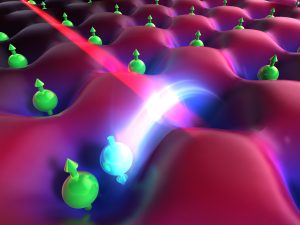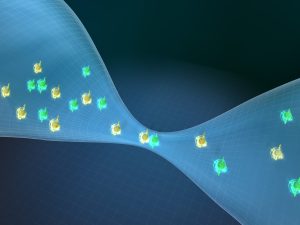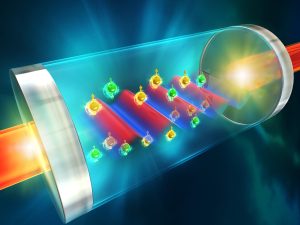Research
Ultracold atoms
Ultracold atoms are atomic gas systems at ultra-low temperatures confined inside a vacuum chamber. Research in this field has actively been advancing since the realization of Bose-Einstein condensates in 1995. Recently, technologies such as quantum gas microscopes and optical tweezers have made it possible to control atomic ensembles at the single-atom level, enabling quantum simulations to construct and test desired quantum many-body systems and quantum computing with Rydberg atoms that possess high principal quantum numbers, which is now being pursued worldwide. We try to make theoretical proposals to reveal behaviors of novel quantum many-body systems that have yet to be explored with ultracold atoms.

Quantum transport
Owing to development of microfabrication technique, transport phenomena in which quantum mechanical effects play a major role are being continuously verified. For instance, in quantum point contact systems where the conduction channel has a onedimensional structure, it has been confirmed that conductance is quantized in metallic or semiconducting systems. In superconductors, transport phenomena that deviate significantly from Ohmʼs law can also be observed. We are theoretically exploring novel quantum transport phenomena that can be observed with solid-state systems and ultracold atomic systems.

Open quantum systems
In undergraduate quantum mechanics courses, the focus is typically on isolated quantum systems whose time evolution is unitary. However, in many realistic quantum systems, such as those represented by current quantum computers, environmental effects cannot be ignored, making an understanding of non-unitary open quantum systems essential. We try to uncover nonequilibrium properties that emerge due to open quantum effects, with a focus on mesoscopic systems, optical cavity systems, and optical lattice systems.

Theoretical method development for quantum many-body systems
There is still no established theoretical method that can accurately predict behaviors of general quantum many-body systems, and this remains a challenging theme in physics. We are focused on the development of analytical methods based on quantum field theory and numerical simulation techniques, keeping in mind models that play an essential role in condensed matter physics.
